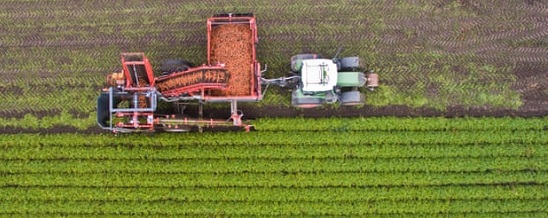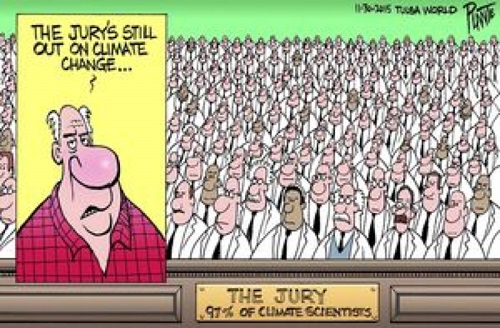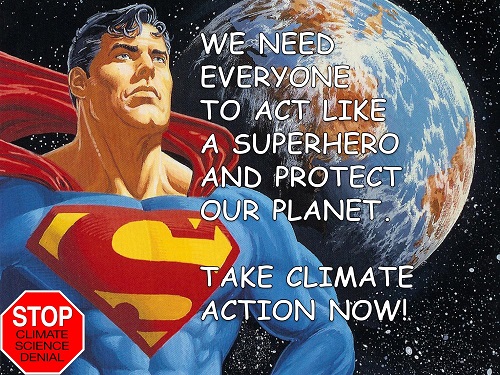
Story of the Week... Opinion of the Week... Toon of the Week... Quote of the Week... Coming Soon on SkS... Poster of the Week... SkS Week in Review...
Plants, insects and organisms crucial to food production in steep decline, says UN

The world’s capacity to produce food is being undermined by humanity’s failure to protect biodiversity, according to the first UN study of the plants, animals and micro-organisms that help to put meals on our plates.
The stark warning was issued by the Food and Agriculture Organisation after scientists found evidence the natural support systems that underpin the human diet are deteriorating around the world as farms, cities and factories gobble up land and pump out chemicals.Over the last two decades, approximately 20% of the earth’s vegetated surface has become less productive, said the report, launched on Friday.
It noted a “debilitating” loss of soil biodiversity, forests, grasslands, coral reefs, mangroves, seagrass beds and genetic diversity in crop and livestock species. In the oceans, a third of fishing areas are being overharvested.
Many species that are indirectly involved in food production, such as birds that eat crop pests and mangrove trees that help to purify water, are less abundant than in the past, noted the study, which collated global data, academic papers and reports by the governments of 91 countries.
It found 63% of plants, 11% of birds, and 5% of fish and fungi were in decline. Pollinators, which provide essential services to three-quarters of the world’s crops, are under threat. As well as the well-documented decline of bees and other insects, the report noted that 17% of vertebrate pollinators, such as bats and birds, were threatened with extinction.
Once lost, the species that are critical to our food systems cannot be recovered, it said. “This places the future of our food and the environment under severe threat.”
World's food supply under 'severe threat' from loss of biodiversity by Jonathan Watts, Guardian, Feb 21, 2019

One imagines that Senator Dianne Feinstein would like a do-over of her colloquy with some young people on Friday afternoon. A group of school students, at least one as young as seven, went to the senator’s San Francisco office to ask her to support the Green New Deal climate legislation. In a video posted online by the Sunrise Movement, she tells them that the resolution isn’t a good one, because it can’t be paid for, and the Republicans in the Senate won’t support it. She adds that she is at work on her own resolution, which she thinks could pass. Then, when the group persists in supporting the Green New Deal, which was introduced by Representative Alexandria Ocasio-Cortez, Feinstein responds, “You know what’s interesting about this group? I’ve been doing this for thirty years. I know what I’m doing. You come in here and you say, ‘It has to be my way or the highway.’ I don’t respond to that. I’ve gotten elected, I just ran, I was elected by almost a million-vote plurality,” she continued. “And I know what I’m doing. So, you know, maybe people should listen a little bit.”
The Hard Lessons of Dianne Feinstein’s Encounter with the Young Green New Deal Activists, Opinion by Bill McKibben, New Yorker Magazine, Feb 23, 2019


Posted by John Hartz on Sunday, 24 February, 2019
 |
The Skeptical Science website by Skeptical Science is licensed under a Creative Commons Attribution 3.0 Unported License. |